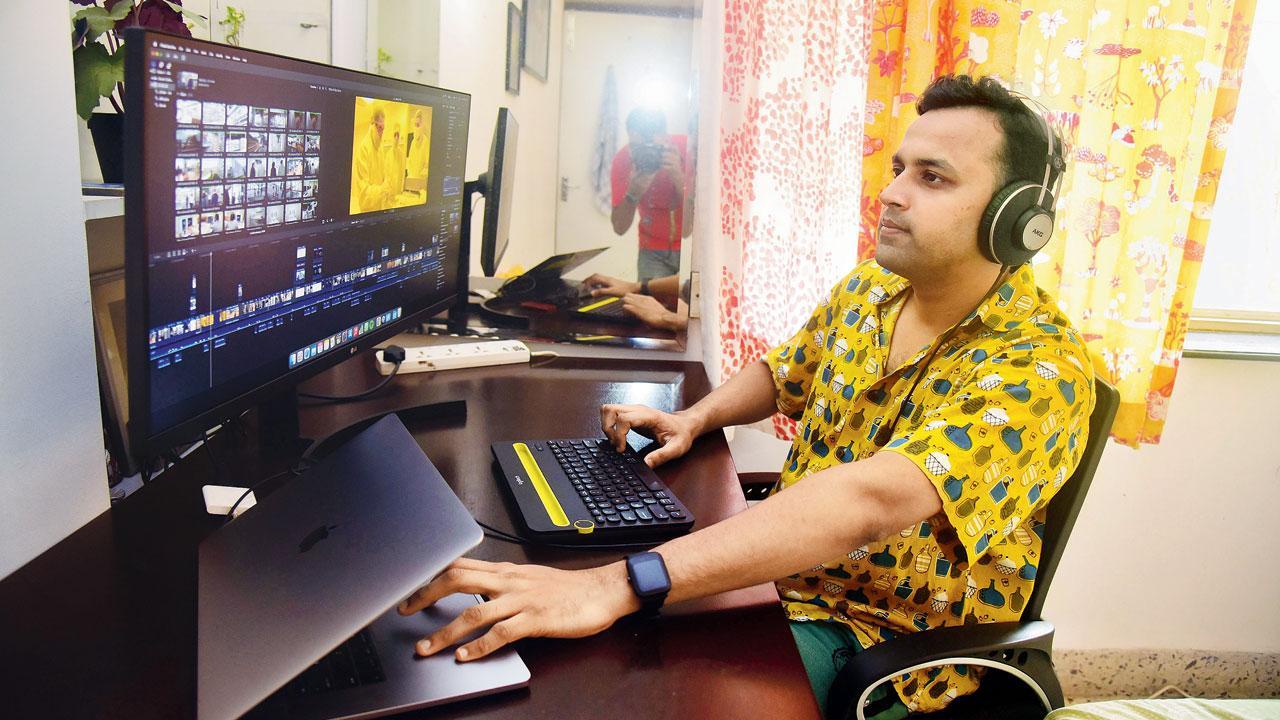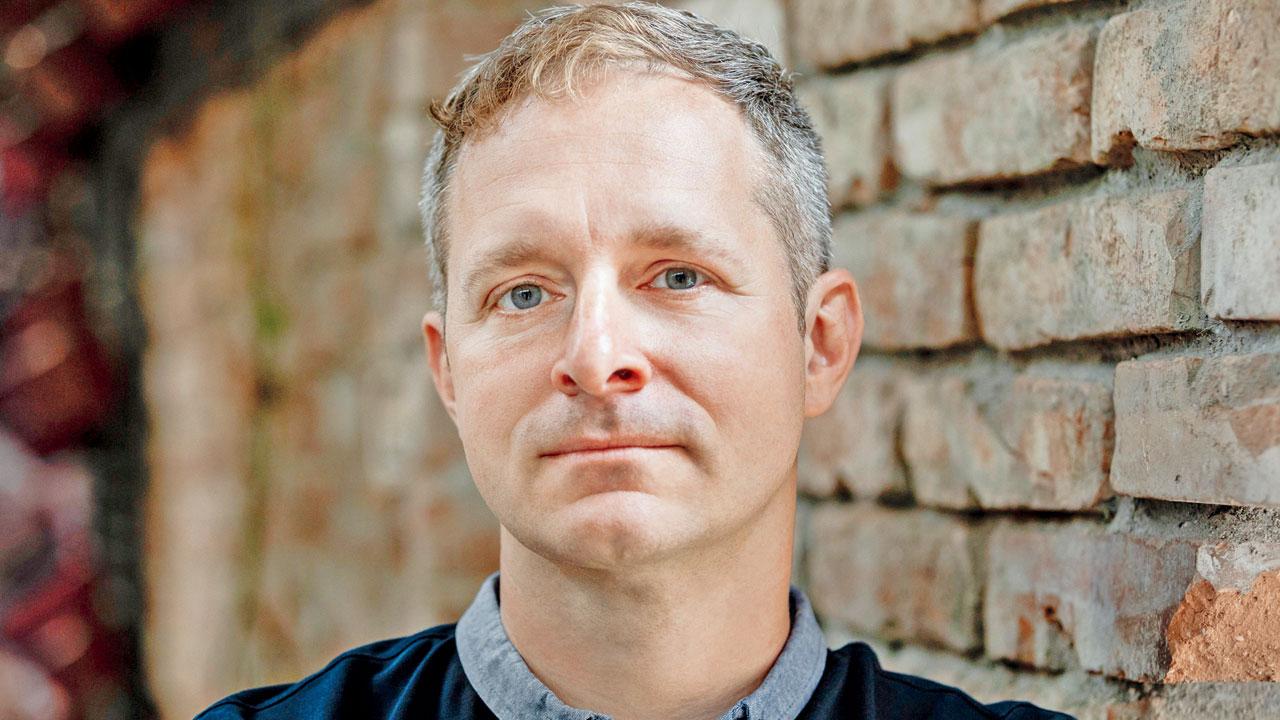All things great and small, needed to make it on your own

Project drought is a risk to all freelancers, says author Robert Vlach. Due to a family member’s fragile health, film-maker Anand Holla avoids taking on projects that demand him to go out of town. He deals with project droughts by chasing multiple channels. Pic/ Shadab Khan
The Freelance Way: Best Business Practices, Tools and Strategies for Freelancers by Robert Vlach is a hefty textbook on the subject of how to shape a successful career path through self employment. It’s a valuable tome—at 460 pages—and concretises many ephemeral concepts that may be vaguely swimming in a freelancers head. It reminds one of a well-informed, intellectual uncle who has been thinking hard about these matters, but unfortunately, has the story-telling talent of a fern.
ADVERTISEMENT
The book begins by detailing the freelancer economy, and helps the reader define one’s work: Are you a consultant employed by a firm during specific periods, such as financial year ends, like a chartered accountant. Or are you a free ranger, offering your service to many, sometimes at the same time, like an interior designer. It helps the self-esteem very much when Vlach points out that Bruce Springsteen and William Shakespeare are/were very successful freelancers, so successful that they were able to generate employment opportunities for others.
In Springsteen’s case, for sound technicians, event managers, marketing professionals, for short bursts of time. They are not regular employees on a payroll; and he is not employed by a company or individual to perform every week. Shakespeare, of course, was a successful writer (poems and play, remember) leaping over writer’s blocks, tapping into current news and popular themes, and sometimes, writing commissioned pieces. He made enough to buy the largest house in his hometown and retire well-off.
Robert Vlach has founded one of Europe’s largest freelance communities and its first think-tank for those on their own

Robert Vlach
Vlach calls this the Hollywood model, a group of inter-dependent professionals coming together to work on a project, and dispersing thereafter. Unlike other books on how to be a successful freelancer, this book looks at the bigger picture: Why and how is “reputation” the first pillar of your service, how to define personal productivity and goals; what to do when you have more work than hours? Would you employ people, and thus become a small business, or raise prices to work only on premium projects that excite?
In each of the chapters, he sprinkles resources liberally: Podcasts, books, short films, blogs that dive deeper into one aspect—such as psychologist Carl Jung’s work retreats. There are several off-sites such as Yung’s were a freelancer can upskill or gather tools—grouping tasks, prioritising, scheduling, reflecting on I-T and IT needs, optimising biorhythms for productivity, the role of business cards and much more.
He also brings into focus small skills that make a big impact: learning to touch-type, for instance. It would only take a few months and increase productivity manifold if typing is at the core of your work. Another crucial advice is to not undertake a task you are half-good at in a bid to cut corners. Professional accountants will be able to project and implement a financial plan for your future, and I-T professionals will tell you a free Gmail account is dodgy about safekeeping your data, simply because Google does not invest in its free services.
The book can be laborious, not only in tone but for the sheer volume of tools and depth of information it offers. Luckily, each chapter ends with a synopsis categorised into “key ideas” and “practices”. You could rapid read through those first, and later dive into each chapter. Keep a pencil/highlighter handy; there are many notes you’ll want to make and remember.
WHAT: The Freelance Way: Best Business Practices, Tools and Strategies for Freelancers
WHERE: Available at all leading bookstores
PRICE: Rs 499
 Subscribe today by clicking the link and stay updated with the latest news!" Click here!
Subscribe today by clicking the link and stay updated with the latest news!" Click here!







